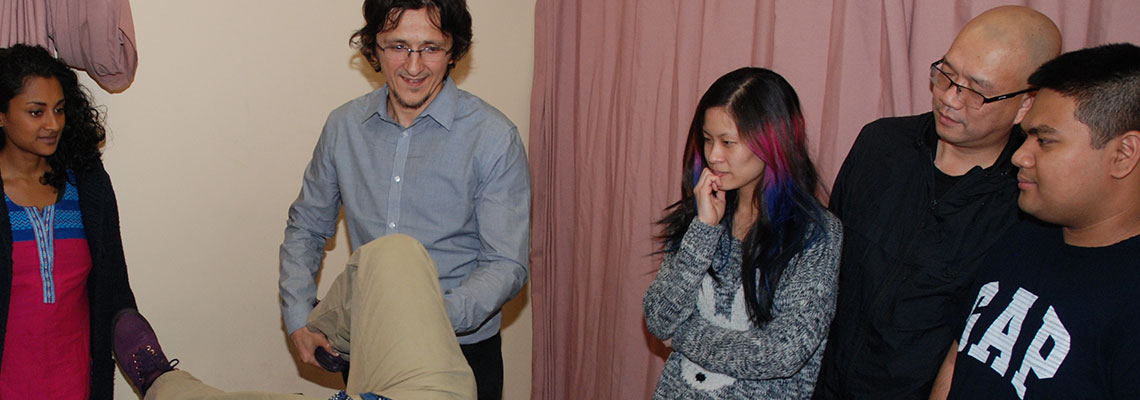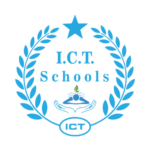
ICT Advantage
Department of Education
ICT’s Department of Education has been responsible for numerous ICT achievements which have contributed to the outstanding reputation of ICT Schools.
- ICT Schools’ fully articulated curriculum
- Course Workbooks
- Test Bank
- Student-Centered-Interactive-Learning Method
- Teacher Education Certificate Program
- Preadmission Correspondence Course
- Graduate Courses and Programs
- Education Provider for Athabasca University
Dr. Gila Strauch, Director of Education Emeritus has played a critical role in the developpment of ICT’s curriculum. Dr. Strauch earned her Ph.D. from the Curriculum Department of OISE, University of Toronto in 1994 where her studies focused on science education and curriculum development. Dr. Strauch also holds a B.SC. in Life Sciences from Tel Aviv University in 1972, a M.Sc. in Microbiology and Immunology from Tel Aviv University where she graduated Magna Cum Laude in 1974, and a M.Ed. in Science Education from OISE in 1990.
SCIL Learning Method
ICT Schools has drawn upon educational research to develop a unique learning method called Student-Centered-Interactive-Learning (SCIL). We have designed our method to involve students as much as possible in the learning process. Since learning does not take place in a vacuum, we encourage contextual learning, which corresponds to real-life demands of practice and flourishes in your interaction with peers, professional colleagues and faculty. We have developed our curriculum with your learning process in mind. We present information in a logical and coherent manner, and provide you with a treatment template designed to help you integrate the material. We coordinate subject matter across courses in our programs.
The theoretical component of the program allows for various learning styles in incorporating a variety of formats, including discussions and worksheets. Although there is no getting around the need for memorization, we have analyzed the information you need to know and systematized it as much as possible.
One of our major goals as complementary health care educators is to provide you with critical thinking skills to sustain your continued growth as health care providers once you graduate. We have designed our programs in such a way that from your first class you begin to truly integrate subject matter into a coherent whole. Our curriculum requires you to work continually with the material, rather than simply memorizing then forgetting it: you research, problem-solve, and discuss material with your peers. The best therapists know how to assess thoroughly – to use logic to understand and address a client’s individual condition and needs. At ICT Schools, we prepare you for the variety of individuals and conditions you may encounter by teaching you how to approach client care in a critical manner.
The practical component is the most important aspect of programming. Practical classes are your first opportunity to apply and integrate theoretical knowledge with hands-on work. Practical classes are safe, supervised environments that use case studies and simulated clients to nourish the skills you need for treating clients in the College Teaching Clinic and later in professional practice. Our teaching clinic allows you to continue your practical experience in an environment that approximates real-life conditions and issues.
In brief, our programs help the process of integration so that by the time you graduate you are a competent, knowledgeable critical-thinking practitioner or therapist. Our curriculum prepares you to continue your education throughout your practice as you encounter an ever larger range of conditions and clients.
Teaching Excellence
ICT teachers are accomplished therapists, practitioners, and professionals who have responded to the “call to teach”. ICT Schools ensures that ICT teachers possess the skills and knowledge to teach. All ICT teachers receive on-going teacher education.
Suikodo®
Suikodo is an innovative form of manual medicine developed by Shiatsu Master Mitsuki Kikkawa. It includes precise palpatory and observation-based assessment techniques, as well as treatment techniques such as meridian stretches, direct pressure Shiatsu-style techniques, Neuromeridian Stimulation (NMS) techniques, and energy-based techniques. Suikodo posits that the body’s innate wisdom can be interpreted through direct feedback from the body. Using the information, the therapist can determine the appropriate type and amount of stimulus to be applied to obtain healing.
Suikodo Therapy is exclusive to ICT Schools. Anyone wishing to train in this modality must attend Suikodo courses that are provided by ICT Schools. Unless you have successfully completed an ICT course in Suikodo, you are not able to hold yourself out as a provider of Suikodo Therapy. Undergraduates in the Massage Therapy Program at ICT Schools are offered the basic level Suikodo course as part of the Electives 200 Series.
Mitsuki Kikkawa
Suikodo was developed by the late Mitsuki Kikkawa as an extension of his many years of experience as a therapist, educator and treatment innovator. Educated in Japan at the Japan Shiatsu College in Tokyo under the mentorship of Shiatsu Master Tokujiro Namikoshi, Mr. Kikkawa came to Canada in 1972 to practice Shiatsu Therapy in Toronto Ontario. In 1981 he co-founded Kikkawa College and developed the first two-year professional Shiatsu Training Program in Ontario.
Mr. Kikkawa was a founding member and on the interim board of the Shiatsu Therapy Association of Ontario and has been made an honorary life-time member in tribute to his contribution in establishing Shiatsu Therapy in Canada.
For Articles on Suikodo
Massage Therapy Canada Magazine
Issues: Spring, 2003 and Fall, 2003
www.massagetherapycanada.com
Student Services
Tutorial Services
ICT Schools provides students with tutorial sessions in various courses. These tutorial sessions are designed to service those students who are experiencing difficulty in the program. There is no charge for this service.
Provincial Certification Tutorials
At ICT school locations where massage therapy is provincially regulated, the school will provide special provincial certification examination preparation tutorials for all graduating students. There is no charge for this service.
Employment Opportunity Registry
An Employment Registry providing a collection of job opportunities provided to the College by prospective employers is kept on site for the perusal of undergraduates and graduates of ICT Schools.
Student Association
The mission of the Student Association is to promote student issues and interests. Association representatives are involved in orientation activities, socials, peer tutoring and graduation planning. The Student Association also elects student representatives to designated administrative bodies.
Alumni Services
ICT keeps in touch with its alumni through mail outs of surveys and notices of continuing education courses. Alumni receive preferred registration and discounts on school-sponsored events. Upon presentation of their alumni card, alumni may peruse the Employment Registry. For more information on the Alumni Association click here.
Degree Opportunity at Athabasca University
ICT’s tradition of providing excellence in Massage Therapy education continues to pay off in many ways for its students and graduates. ICT is known for its many achievements that have contributed to its reputation of innovation and high standards of education. Our present success in developing an articulation agreement with Athabasca University continues to add to our reputation in the industry.
What does this mean for our students? As an ICT graduate in Massage Therapy you can choose to continue with your education and acquire a university degree in health sciences. Athabasca University is Canada’s largest and most notable on-line distance education university. As a university that provides on-line distance education, you can work towards your degree at your own pace while you are practicing as a Massage Therapist at any time in the future. You do not have to relocate, and you can obtain a degree in accordance with a schedule that works best for you.
As a graduate of ICT Schools’ Massage Therapy program you can transfer up to 30 credits towards a 120 credit degree. As you complete your education in Massage Therapy you also complete one year of university. The tuition you incur in becoming a Massage Therapist also pays for one year of university education at Athabasca.
www.athabascau.ca
Loan Default, Graduation and Employment Rates
The school you choose to attend can be as important as your decision to follow a specific career path. Of particular importance you may want to consider a school’s location, tuition, learning atmosphere, educational history, curriculum, whether or not the school is accredited and its professional affiliations.
In Ontario, The Ministry of Training, Colleges and Universities provides the graduation, placement and loan default statistics for potential students. The most recent statistics can be found on the MCU website under Kikkawa College at: http://www.tcu.gov.on.ca/pepg/audiences/pcc/2016-pcc-kpi/kpi2016-college-list.html
